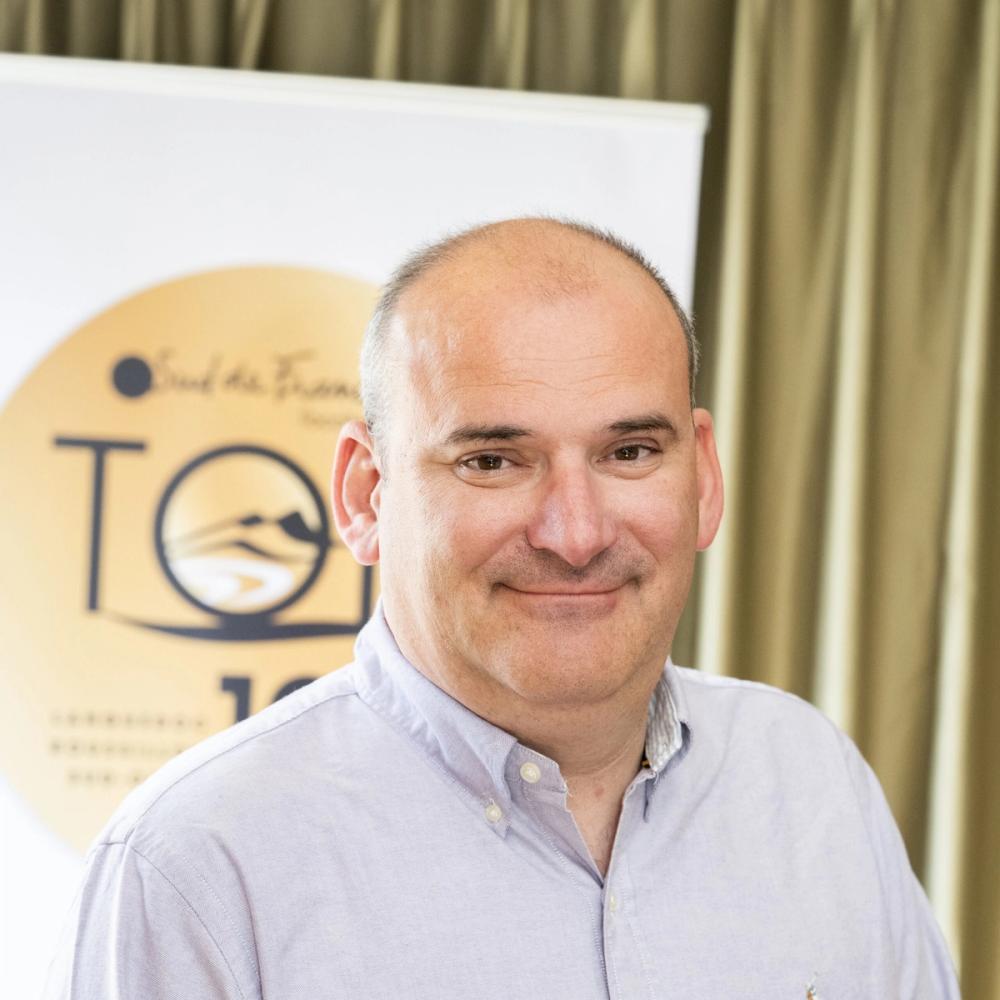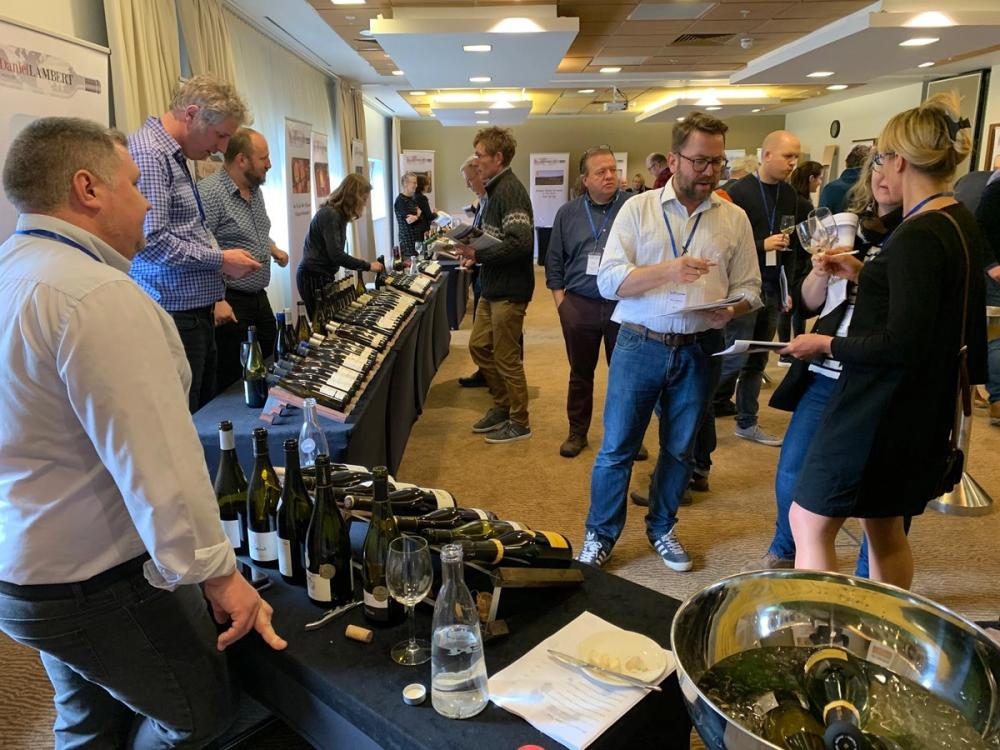As a wine importer you are clearly looking to bring in new producers to your range all the time - but it must be a delicate balance as another producer might mean another winery gets less attention. How do you tackle and address that balance?
We are truly blessed and are contacted daily by producers from all over the world looking for an agent to sell their wines. Only one per cent get taken on and this is the very best and most interesting one per cent, but this is important as it will not affect a current supplier.

Daniel Lambert now lives in France and runs his UK-based business from there
For example, we have work exclusively with Calmel & Joseph for over 20 years and together we have built up a very good following for their wines in the UK. Therefore we don’t need or want additional wines from the Languedoc. Equally a few competitors have knocked on the door of C&J to try and get access to their wines directly which is something they will not entertain because of our long standing relationship.
What criteria do you use when taking on a new producer and their wines?
We love family wineries and family businesses, even more so if they use organic farming methods. We are not really interested in pile it high, sell it cheap wines. Quality is the first consideration followed by price. But equally the wines must be realistic to market conditions and offer great value.
We are constantly reviewing all the wines in our range and remove wines that stop meeting this criteria.
Will you take on all their wines - or have a strategy in terms of how many wines from a new producer you are willing to take on?
No but a good question. Recently we took on the wines from a Cahors producer. He makes several wines and they are all good, but there is only some much Cahors you can sell. Having duplication just costs money in tied up stock. So we buy two wines from his range of 10 wines.
Again competitors do then try and muscle in with the other wines, but we have already listed their best wines so that approach normally fails. I actually watched this happen at Wine Paris earlier this year whilst I was sat on their stand. The lack of respect in the trade today is appalling or perhaps it is just desperation. I just wish there was a bit more integrity out there.
Is it a case of scaling it up? Try with one or two wines and then build them up?
Once we have chosen a range, if anything, we scale it back. Not everything we do is a success so I have learnt to be very careful with stock holdings.
You clearly need to have your customers on board and willing to take on new wines and producers - how do you manage that?
Independent wine merchants are always on the look out for new wines. Newness is one of the key points to a successful business, and whilst we give all our suppliers a fair chance we do remove wines, regardless of what I may think about the wines, if they are not washing their face. Then they are gone.
Equally we look at a customer’s range and try and spot the gaps where we might be able to help. If they have poor wines from a region we will target these products, which is also quite effective.
If they take on a new producer do you have to accept that might mean they stop buying wines from another one of your producers?

Daniel Lambert will only take on three or four producers a year and works hard to find the right ones
Yes, because having 10 Sancerres, for example, is not ideal. Overlapping wines doesn’t really work unless you’re a very big player and need that scope. We are not a massive agency, and we are quite happy with that. We grow organically ever year when many others are seeing sales fall.
Can you give us an example of a producer you have introduced to your range and how you have gone about doing that in order to get customer support?
We introduce three to four new producers each year. Last year we introduced a new producer from Gascony. The wines already had very good distribution in many EU markets but were virgins to the UK. We have been able to take their wines and place them in many accounts because the product is so good and ticks so many of the boxes. We aim to do that time and time again.
Our new Port house, Butler Nephew, which only went live last month, is already being listed inmany locations and independents are loving the quality and price. It all comes down to good sourcing.
Why did you want to work with Butler Nephew vs other Portuguese producers?
This house is really interesting. It was brought to my attention by Peter Wood at St Andrews Wine Company. I met up with the owner here in France and loved their wines and the Ports he is making. We then discussed terms and were very realistic about our expectations.
I wasn’t really looking for a Port. It found me and everything seems right. After 33 years in the trade you just know when something will work, and equally when to run the other way.
What steps do you go through before you decide to take on a new wine?

Daniel Lambert has built strong relationships both with the producers he works with but the network of independent wine merchants across the country
Firstly we try all the wines and if possible visit the winery. Secondly we have a very frank and honest conversation with the producer to understand their expectations and whether this matches to what the market can do. More often than not this is the end of the line. But if the winery is realistic and we can agree terms, subject to quality, price and marketing, then we move forward.
Do you use promotions and reduced pricing etc in order to introduce them to your customers?
We are one of the very few importers that run a monthly promo with 15%-30% off selected wines. The wines change every month and it has proven to work well.
Is it harder to take on a new producer in terms of taking a risk - with all the extra administration, duty and costs - you have to make sure you are on to a winner from the off?
Any shipping is a pain in the bum now thanks to the hopeless Tories and there shitty little Brexit wet dream that has taken effect. As we have our own bond warehouse in the UK and do most of the documents in house we have made it as easy as it can be, but that is a full time job for our small team.
* You can find out more about Daniel Lambert Wines at its website here.






























